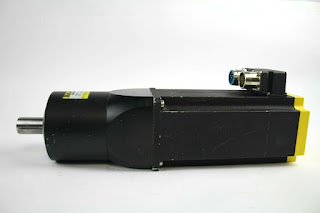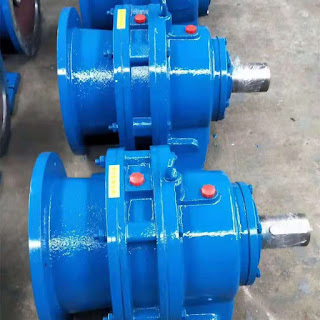What Is A Servo Motor?How Does A Servo Motor Work?
What is a servo motor?
The servo motor can also be called an executive motor, which is an executive component in an automatic control system. Its job is to convert the received electrical signal into an angular velocity output or an angular displacement output on the motor shaft.
Servo motor classification
There are two classifications of DC servo motor and AC servo motor. The main feature is that there is no rotation when the signal voltage is zero; the speed will drop at a uniform speed as the torque increases.
DC servo motors are ideal for small applications, but they cannot handle large current surges. However, AC servo motors can cope with higher current surges and are widely used in industrial machinery. When it comes to price, DC motors are cheaper than AC servos, so they are used more. In addition, DC motors are specifically designed for continuous rotation, which makes them ideal for robot motion.
How does a servo motor work?
The working principle of the servo motor is relatively simple, but its work is more efficient. The servo circuit is built into the motor unit, and it uses a flexible shaft usually equipped with gears. The electrical signal controls the motor and also determines the amount of movement of the shaft. The internal setting of the servo motor is simple: small DC motor, control circuit and potentiometer. The DC motor is connected to the control wheel through a gear. When the motor rotates, the resistance of the potentiometer changes, and the control circuit can accurately adjust the movement and direction.
When the shaft is in the correct (ideal) position, the motor stops supplying power. If the axis does not stop at the target position, the motor keeps running until it enters the correct direction. The position of the target is transmitted through a signal line using electric pulses. Therefore, the speed of the motor is proportional to the actual and ideal position. When the motor is close to the desired position, the motor starts to rotate slowly, but when the motor turns to the farthest, the speed is fast.
When the AC servo motor has no control voltage, there is only the pulsating magnetic field generated by the excitation winding in the air gap, and the rotor is stationary without starting torque. When there is a control voltage and the control winding current is out of phase with the field winding current, a rotating magnetic field is generated in the air gap and an electromagnetic torque is generated to make the rotor rotate in the direction of the rotating magnetic field. However, the requirement for the servo motor is not only that it can be started under the action of the control voltage, but also that the motor should be able to stop immediately after the voltage disappears. If the servo motor continues to rotate like a general single-phase asynchronous motor after the control voltage disappears, a loss of control will occur. We call this phenomenon of self-rotation due to loss of control as autorotation.
The basic working principle of the traditional DC servo motor is exactly the same as that of the ordinary DC motor. The electromagnetic torque is generated by the armature current and the air gap magnetic flux to make the servo motor rotate. Usually the armature control method is adopted, that is, the speed is adjusted by changing the armature voltage while keeping the excitation voltage unchanged. The smaller the armature voltage, the lower the speed; when the armature voltage is zero, the motor stops. Since the armature current is also zero when the armature voltage is zero, the motor does not produce electromagnetic torque and does not ""rotate"".
CAMEL is a professional supplier,distributor and manufacturer of speed reducers and related accesories. including gear reducers, rotary reducer, worm gearbox, servo-gearbox, planetary gearboxes, planetary gear reducer helical gear reducers, planetary gearbox, right angle gear reducer, gear reduction, gear motors, electrical motors, DC motors, DC gear motor, dc gearedmotors, AC gear motor, AC motors, servo motors, ac servo motor, dc servo motor, servomotor, bearings, gears, spur gear, helical gear, bevel gear, worm gear, planetary gear, couplings, oil seals, belts, chains, etc. If you have any need, please feel free to contact CAMEL:




评论
发表评论